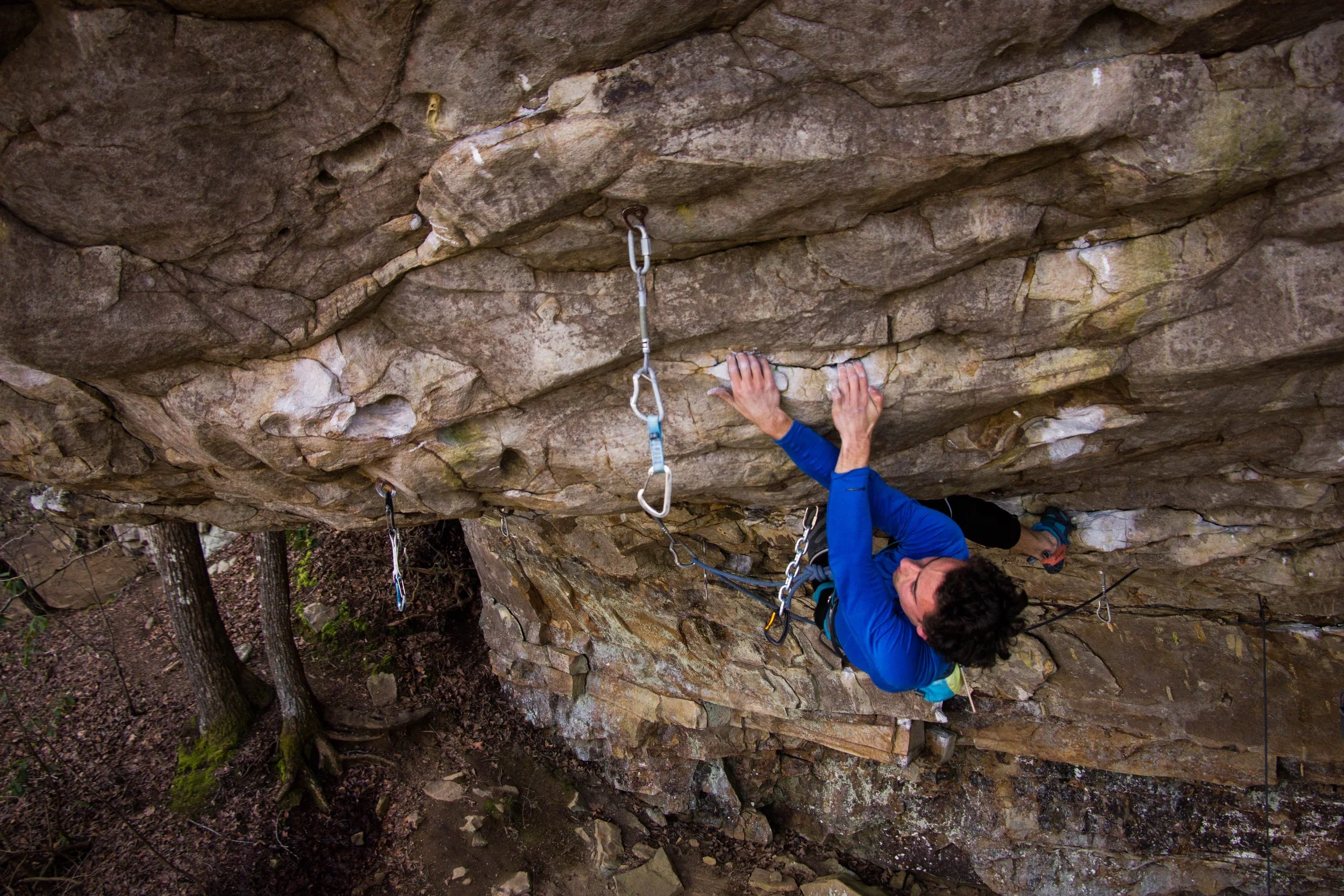Defining Terms - Why Most People Fail in Their Training
In my experience, one of the most common reasons people “fail” in their training is that they never define terms. I’m a very analytical person, and in addition to coaching for many years, I also have a degree in Mathematics and four years of experience teaching AP Calculus. Math works - or rather, can be understood - because terms and operations are clearly defined. If, then. Plus, minus. For all, there exists, etc.
One of my longest-term goals, achieved in 2019 - Southern Comfort (14a), Alabama
A problem cannot be solved unless its terms have been defined. Unfortunately, climbers are notoriously bad at defining terms.
“I want to be stronger.”
Ok, what does stronger mean? Physically? Mentally? In your fingers? Stronger than a particular person? Climbing the next grade? Climbing your same grades but in less time?
“I want to improve my head game.”
Ok, what does head game mean? Fear of falling? Performance anxiety? Negative self-talk? Difficulty committing to moves? Over-fixation on outcomes? Fear of failure or looking bad?
Let’s say a climber defines their goal very specifically as “be able to exert greater maximal force in a half crimp position”. This is a great start. We’re not talking about how long they can hang. We’re not overgeneralizing with “get stronger fingers”. We could still be more specific, and consider the rate of force (i.e. strength vs power) or the percentage increase they want to aim for. However, this is already more specific than most climbers will ever intuitively say.
If that feels too detailed, let’s take a step back. Stronger fingers are somewhat of a bandwagon craving, so I started with that example. However, now consider one of my favorite examples of the importance of defining terms.
“I love the feeling of climbing everything perfectly.”
Many dedicated climbers consider themselves perfectionists. They refine. They write microbeta. They climb moves with slow control. They look perfect until, suddenly, they fall. Or worse - say take, despite having climbed with absolute elegance until that point. What gives?
Being a perfectionist isn’t holding them back. Their definition of perfection is.
Chasing perfection on “Simply Read” (13d) in Rifle, 2021
I’ve fallen into this trap many times - and still do, without an outside perspective reminding me. The feeling of effortlessness is so enticing and addictive. We send our first big project, and when it finally happens, it feels easy. It feels…perfect.
And so begins a false correlation between ease and perfection. Perfection is NOT:
Feeling effortless or easy
Moving static or slowly
Having excess margin, strength, or capacity
Perfection is consistency and understanding.
Maybe you can’t lock off a move, but you can fluidly deadpoint to it 10/10 times. You also understand the timing of your breath on the move, the trajectory of your body, limbs, and fingers, and the best mindset to access when setting up for it. That is perfection.
I’ve seen so many climbers prolong, or even abandon, their project because they never had the “perfect” try. Really, they were never chasing a perfect try. They were chasing an effortless try. A try where everything felt in control. Where the foot never slipped, or the fingers didn’t slide, or the clip didn’t take two tries.
So again, define your terms. It’s the foundation for meaningful progress. Clarity transforms vague goals into actionable plans. Climbers are rarely short on dreams and passion. But the next time you say to yourself “I want to get better”, pause, and ask yourself, “better at what, exactly?” And keep going until your answer is something you can train for, measure, and reflect on. Once your terms are clear, your path becomes a whole lot easier to follow.


